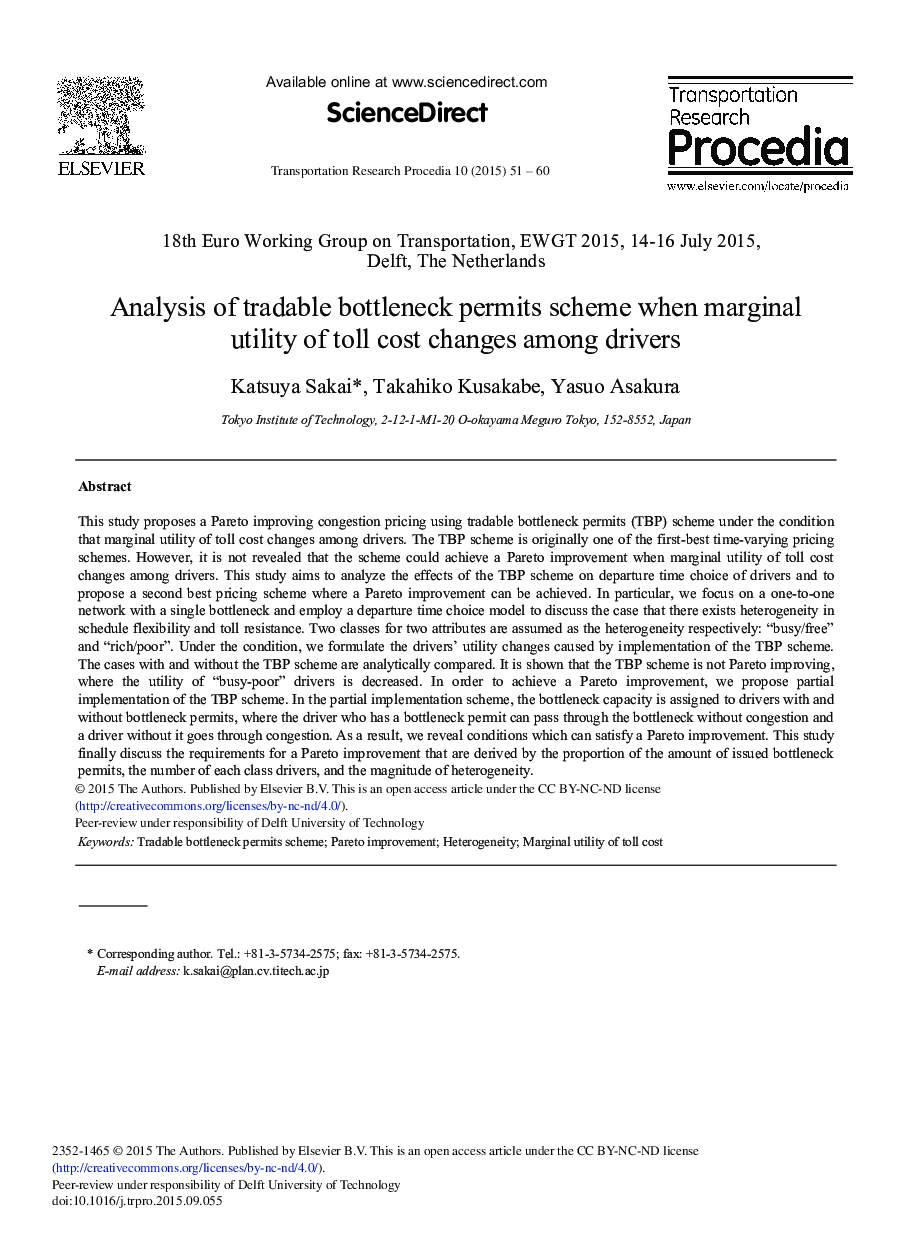| Article ID | Journal | Published Year | Pages | File Type |
|---|---|---|---|---|
| 1106815 | Transportation Research Procedia | 2015 | 10 Pages |
This study proposes a Pareto improving congestion pricing using tradable bottleneck permits (TBP) scheme under the condition that marginal utility of toll cost changes among drivers. The TBP scheme is originally one of the first-best time-varying pricing schemes. However, it is not revealed that the scheme could achieve a Pareto improvement when marginal utility of toll cost changes among drivers. This study aims to analyze the effects of the TBP scheme on departure time choice of drivers and to propose a second best pricing scheme where a Pareto improvement can be achieved. In particular, we focus on a one-to-one network with a single bottleneck and employ a departure time choice model to discuss the case that there exists heterogeneity in schedule flexibility and toll resistance. Two classes for two attributes are assumed as the heterogeneity respectively: “busy/free” and “rich/poor”. Under the condition, we formulate the drivers’ utility changes caused by implementation of the TBP scheme. The cases with and without the TBP scheme are analytically compared. It is shown that the TBP scheme is not Pareto improving, where the utility of “busy-poor” drivers is decreased. In order to achieve a Pareto improvement, we propose partial implementation of the TBP scheme. In the partial implementation scheme, the bottleneck capacity is assigned to drivers with and without bottleneck permits, where the driver who has a bottleneck permit can pass through the bottleneck without congestion and a driver without it goes through congestion. As a result, we reveal conditions which can satisfy a Pareto improvement. This study finally discuss the requirements for a Pareto improvement that are derived by the proportion of the amount of issued bottleneck permits, the number of each class drivers, and the magnitude of heterogeneity.
